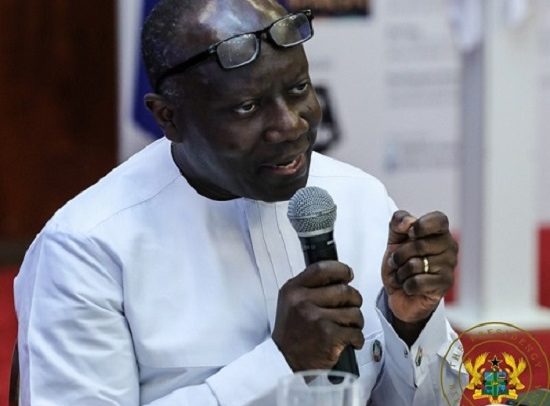Ken Ofori-Atta
The Ministry of Finance has rejected claims that the assistance Ghana is likely to get from the International Monetary Fund (IMF) is a bailout.
According to the Ministry, they are requesting the IMF to support the Government’s Enhanced Domestic Economic Programme with financing as well as work with Ghana to achieve sustainable growth and prosperity and not bailout.
Per Frequently Asked Question (FAQ) on the IMF shared by the Ministry of Finance, states the IMF programme is necessary because the government needs financing assurances to be able to support its domestic economic programme.
“Currently, these financing assurances do not exist given that Ghana has limited access to the International Capital Market. On the other hand, an IMF-supported programme will come with financing assurances which is needed,” the ministry stated.
It says it has always been honest about the state of affairs of the economy as the government has always acted swiftly based on data and the analysis.
“Therefore, in March, following a Cabinet retreat that considered the state of the economy, government approved additional discretionary expenditure cuts up to 30% to contain the deficit. Also, the BoG deployed its monetary policy tools including raising the policy rate by 450 basis points cumulatively since February till-date.”
Although the IMF-supported programme negotiations take some time to be concluded, the government was optimistic that depending on the availability of data to assess the macroeconomic situation, the readiness and suitability of the government’s economic programme and nature and feasibility of any prior conditions to be completed by government, programme negotiations can be quick or be protracted for up to 6 months or more.
“Government stands ready to quicken and shorten the negotiation process by sharing relevant data as well as presenting its enhanced economic programme that will anchor the supported programme. We do not anticipate challenges with the completion of any prior conditions if.”
On the aspect of whether Ghana will have to fulfil any IMF Conditionalities, the ministry stated that “When a country seeks support from the IMF through a funded programme, its government agrees to adjust its economic policies to overcome the problems that led it to seek financial support. These policy adjustments are conditions for IMF lending and serve to ensure that the country will be able to repay the IMF. The member country has primary responsibility for selecting, designing, and implementing policies to make the IMF-supported programme successful.
“This system of conditionality is designed to promote national ownership of strong and effective policies. This means that, in the case of Ghana, the conditionalities are expected to be centered around our own Enhanced Domestic Programme which the Government is committed to enforcing.”
By Vincent Kubi


